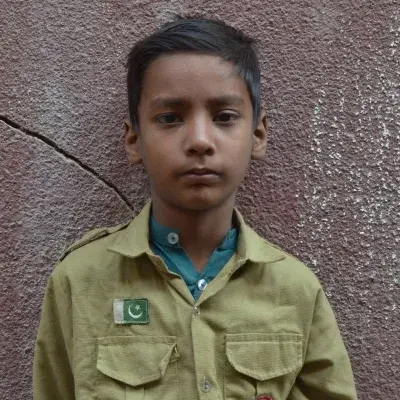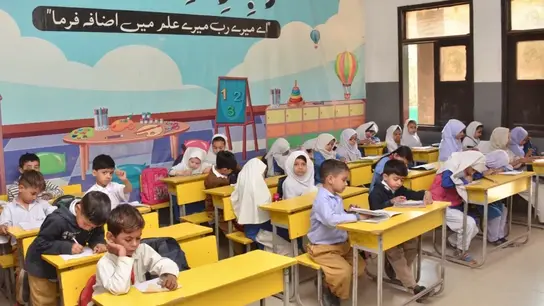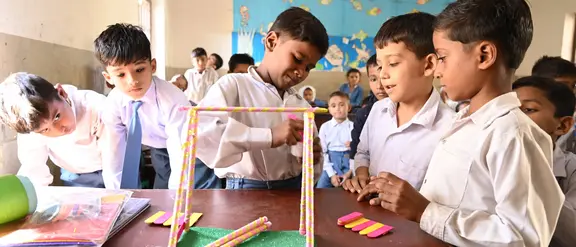Pakistan: Protection from child labor – Education for children
In Karachi, the organization "SPARC" is committed to helping children who have to work in the worst conditions of dependency: as maids and houseboys, in shrimp farms or as street vendors.

"I like school. I have many friends there, and we play a lot. I'm glad things have changed. And that I don't have to work anymore."
Usman is eight years old. For two years he had to work as a domestic helper for the owner of a shrimp factory. The owner's children were able to go to school, but Usman wasn't: his parents depended on his wages to support the family.
Usman and his family come from Machar Colony, Karachi's largest slum. Around 700,000 people live there: some are refugees from Afghanistan, but the majority are Bengalis whose parents or grandparents fled from what is now Bangladesh. Most are without legal residency in the country. Consequently, their financial situation is precarious: many children are forced to bring money home early. They peel shrimp, sell goods on the street, or toil in the homes of wealthier families.
And there are cases where children fare far worse than Usman: In the past 15 years, media outlets have reported on at least 140 children who have been abused, raped, or murdered. Because families are at the mercy of employers without legal protection, and very few cases are even reported, the actual number is likely much higher.
Protection and prospects
To protect children and help them leave poverty and exploitation behind, Terre des Hommes works with several local partner organizations: "Obun2", which does political work for child protection; "DevCon", which especially helps girls to have a future beyond exploitation; and "SPARC", which mainly works for refugee children.

SPARC's social workers engage in dialogue with families to find more sustainable income opportunities for adults, ultimately enabling children to attend school. The organization provides school supplies and repairs school facilities. SPARC also runs two training centers where, among other things, more than 450 young people have already completed computer training.
The project is having an impact: Exactly 1,636 children have already been successfully enrolled in or reintegrated into school with the help of SPARC. Usman is one of them, and he's finally starting first grade: "I'm doing my best to get good grades. I want to become a scout so I can work as a police officer later."
02.09.2025
